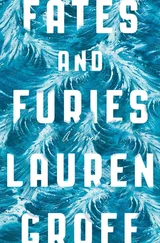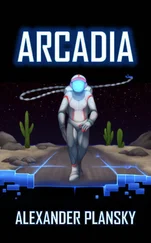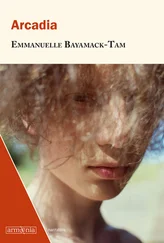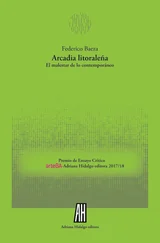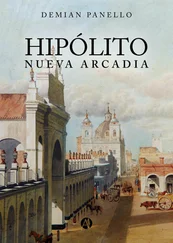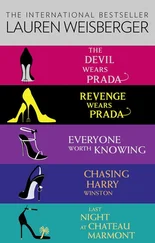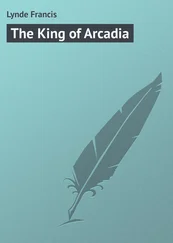Lauren Groff - Arcadia
Здесь есть возможность читать онлайн «Lauren Groff - Arcadia» весь текст электронной книги совершенно бесплатно (целиком полную версию без сокращений). В некоторых случаях можно слушать аудио, скачать через торрент в формате fb2 и присутствует краткое содержание. Год выпуска: 2012, Издательство: Hachette Books, Жанр: Современная проза, на английском языке. Описание произведения, (предисловие) а так же отзывы посетителей доступны на портале библиотеки ЛибКат.
- Название:Arcadia
- Автор:
- Издательство:Hachette Books
- Жанр:
- Год:2012
- ISBN:нет данных
- Рейтинг книги:3 / 5. Голосов: 1
-
Избранное:Добавить в избранное
- Отзывы:
-
Ваша оценка:
- 60
- 1
- 2
- 3
- 4
- 5
Arcadia: краткое содержание, описание и аннотация
Предлагаем к чтению аннотацию, описание, краткое содержание или предисловие (зависит от того, что написал сам автор книги «Arcadia»). Если вы не нашли необходимую информацию о книге — напишите в комментариях, мы постараемся отыскать её.
Arcadia — читать онлайн бесплатно полную книгу (весь текст) целиком
Ниже представлен текст книги, разбитый по страницам. Система сохранения места последней прочитанной страницы, позволяет с удобством читать онлайн бесплатно книгу «Arcadia», без необходимости каждый раз заново искать на чём Вы остановились. Поставьте закладку, и сможете в любой момент перейти на страницу, на которой закончили чтение.
Интервал:
Закладка:
He wants, badly, to cry.
She pulls away, and now her hand is under his chin. She brings his face up until he looks at her, pale, serious, determined. Let’s try again, she says and moves her mouth close. Her hands in the waistband of his jeans. Her hands against his skin, warming him. Bit lets himself go, sink into this strangeness. This is it, he thinks. This, Helle’s softness against his, her weight, the hard tailbone against his thigh, her legs lifting, and the sudden welcome, this, this, is the culmination of all good things he has ever known. There is a hunger in him to stay here forever, suspended.
And then the worry returns as she bites his lips to keep him from groaning: entering him as if from the depth of her mouth come the warring feelings, a ghost in either ear, that what she is doing to him just now is either a deep kindness or a deeper curse.
Midsummer, a tongue of heat in the air. Cockaigne Day is here.
Music squeals and bashes against other music: someone has plugged in an electric guitar down at the parking lot on the County Road, a ring of chanting men in saffron robes beside the Bakery. Three dueling transistors play at the Pond: Led Zeppelin, Black Sabbath, Cat Stevens.
Let me wander if it seems to be real switch on summer in your garden it’s an illusion from a slot machine . . A chimera of song.
Someone has rented a huge white-and-red-striped tent, where they’re staging a love-in for peace. Anyone can go in who has proof of age, but Cole sneaks in to see what’s going on, and when he comes out, his cheeks are blown up like a puffer fish’s with hilarity. The smell of shit intensifies, people pooping everywhere, neglecting to bury their spoor: Bit can almost taste it when he eats his porridge.
Astrid, down in Tennessee, has sensed something, or someone has told her there is trouble brewing. She drove all night from the Midwifery School and arrived this morning to see what she can do. At breakfast she stands, her hands on Hannah’s shoulders, the two tall women speaking softly to each other. They could be sisters, though their blondes are honey and white: the Twin Towers, everybody called them when Bit was growing up. But as he watches, Astrid’s face closes down and Hannah turns abruptly, walks away. When Bit asks what happened, Hannah, who hasn’t spoken to him since the Sugarbush incident, only shakes her head.
Later in the morning, Bit passes a bush jostling wildly, someone fucking someone within. He wants to take a stick and beat them out of there like birds from a tussock. Instead he shouts, There are kids here! and his voice is so high, so childlike itself, it must shame them into pausing because the bush stops shaking until he is past.
He walks up to Arcadia House with hot eyes. Someone built a badminton court among the lettuces, and the tender leaves are trampled. Dorotka is on her knees, sobbing in them (Forellenschluss, Red Leprechaun, Lollo Rossa, Amish Deer Tongue, Merveille des Quatre Saisons). He can hardly look at her, the granny glasses speckled with tears, the loop of her peppery braids, just as he can hardly look at the mangled ground when he puts his hand on her back, and pats and pats until she calms.
He is rolling vegegristle meatballs in the sweltering Eatery kitchen before lunch when he sees Helle go by the window. He is just in time to call out, Helle, wait, I need to talk to you, when she turns and flushes when she sees him, and gives a wave of her hand, and disappears into the thronging masses, some already drunk and dancing to music that Bit can’t, quite, hear.
They are gathered, at last, for Hannah’s Cockaigne Day address. The Proscenium blazes with light, the curtains are sodden with heat. A bead of sweat gathers on Hannah’s cheek and slowly trickles down her chin, although she has given only a few welcoming remarks. She has to shout her words over the noise rising up from the lawn outside.
In the past, people waited until after the address before they began the party.
In the past, of course, there was no flood of strangers to trample Arcadia’s etiquette; there were the stories that kept them in line. Cockaigne Day was just the twilight in midsummer and the Sheep’s Meadow mown so the rich green smell stirs them and the music and the love.
Still, something is going on that isn’t just the interlopers’ rudeness: tonight, the audience is pitiful. A stranger, wandering in, would never believe that Hannah had been here from the beginning, that to be invited to give the Cockaigne Day address is the greatest honor in Arcadia, that Hannah has been preparing for months. Bit writes the names carefully in his head: Abe, beaming with love; Titus and Saucy Sally and their many children; Sweetie and Maria and Ricky; Regina and Ollie; Astrid, looking especially grim. Marilyn and Midge, who fans herself, farting a little. Tarzan and Kaptain Amerika, Cole and Dyllie and Ike, Jincy, Fiona, Muffin. Helle sits beside Ike, smiling everywhere but at Bit. Late, in walk D’Angelo and Scott and Lisa. But that is it, that is it, that is it. No Dorotka. No Eden. Nobody else. No Handy, especially.
Behind Hannah, who speaks of the nineteenth-century Divinist cult that created Arcadia House, the lawns are roiling, masses busy with bongos or pot or bunched around a great trash barrel, which Bit suspects is Slap-Apple liberated from the Storeroom and laced with LSD. The Circenses Singers come white-robed over the lawn in slow-moving procession, the puppets doing their limber-jointed dances. Bit recognizes Leif’s blaze of white hair; he is operating the Fool puppet’s head. Adam and Eve waltz together, refreshed with a coat of peach paint. Even through the glass of the Proscenium windows, the song can be heard, the discordant tune, the drums, the hundreds of bells. A thick circle forms around the puppeteers, gawkers caught by their spell.
Bit imagines a great hand descending from the sky and smashing the revelers like a bad boy smashing a trail of ants. Ashamed, he tunes back in to Hannah. But the heat is brutal; even Bit is sickened and can’t listen as deeply as he’d like to her story. He notes that there are his slides and Verda’s voice unreeling into the dim from a recorder.
Hannah looks out, sees how her audience, though brave, has wilted. She says a little sadly, And here we are. Not unlike the Divinists, idealistic, hardworking, spiritual. Unlike them, she says, we know enough to learn from history and change before it’s too late.
She pauses to gather herself, and in the pause something explodes outside, a green firecracker snaking up into the dimming midsummer sky and bursting into red sparks. She turns to look behind her. Her golden hair is full of glints. And when she turns back, Bit can read on her face that she has decided to end it there.
Thank you, she says. Now let us all enjoy Cockaigne Day. And though they applaud her as greatly as they can in the echoing empty Proscenium, his mother’s shoulders slump as she walks down the stairs.
Outside, the air is cooling a little, the grass sweet-smelling, crushed. A wallpaper of people has spread across Arcadia House lawn, a shifting mirror game of hippies in their gauzy white dresses and halter tops and full-body denim. A long line from the kitchen moves the food out to the fold-out tables. There is lemonade for the kidlets. There is a great barrel of popcorn with nutritional yeast topping, mangled lettuce salad, tomato salad, tempeh salad. Bulgur wheat and bean salad. Spicy tofu salad. Yegg salad. Pasta salad. There are heaps of bread rapidly depleting. Rice and beans. Salsa. A vat of yam stew. So many pies that they will have no more preserves until harvest. Soy cream in pistachio, vanilla, chocolate, strawberry. Some of the day visitors are not so bad: some have come back from various towns laden with grapes and bananas, crates of oranges, celery sticks, great cans of peanut butter, industrial bread, which tastes like paper to Bit. Huge bags of crinkled things someone calls chips that are so salty they make him gasp. Cookies from huge boxes that taste the way batteries do when licked.
Читать дальшеИнтервал:
Закладка:
Похожие книги на «Arcadia»
Представляем Вашему вниманию похожие книги на «Arcadia» списком для выбора. Мы отобрали схожую по названию и смыслу литературу в надежде предоставить читателям больше вариантов отыскать новые, интересные, ещё непрочитанные произведения.
Обсуждение, отзывы о книге «Arcadia» и просто собственные мнения читателей. Оставьте ваши комментарии, напишите, что Вы думаете о произведении, его смысле или главных героях. Укажите что конкретно понравилось, а что нет, и почему Вы так считаете.
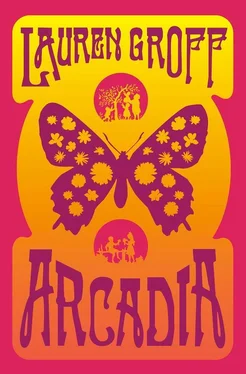
![Andrea Höst - In Arcadia [Touchstone - Extras]](/books/56405/andrea-host-in-arcadia-touchstone-extras-thumb.webp)

